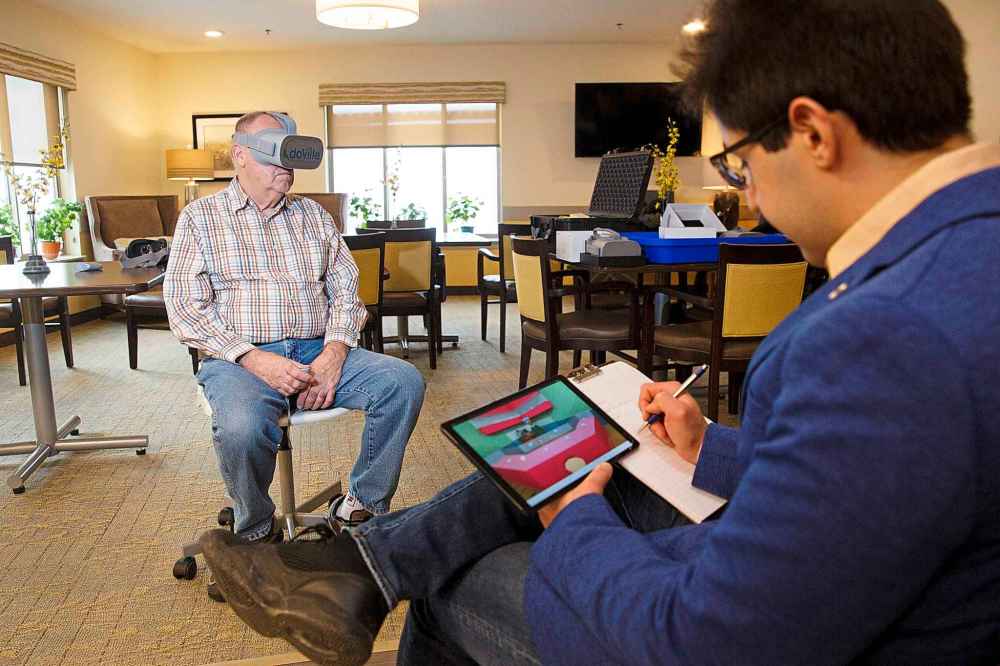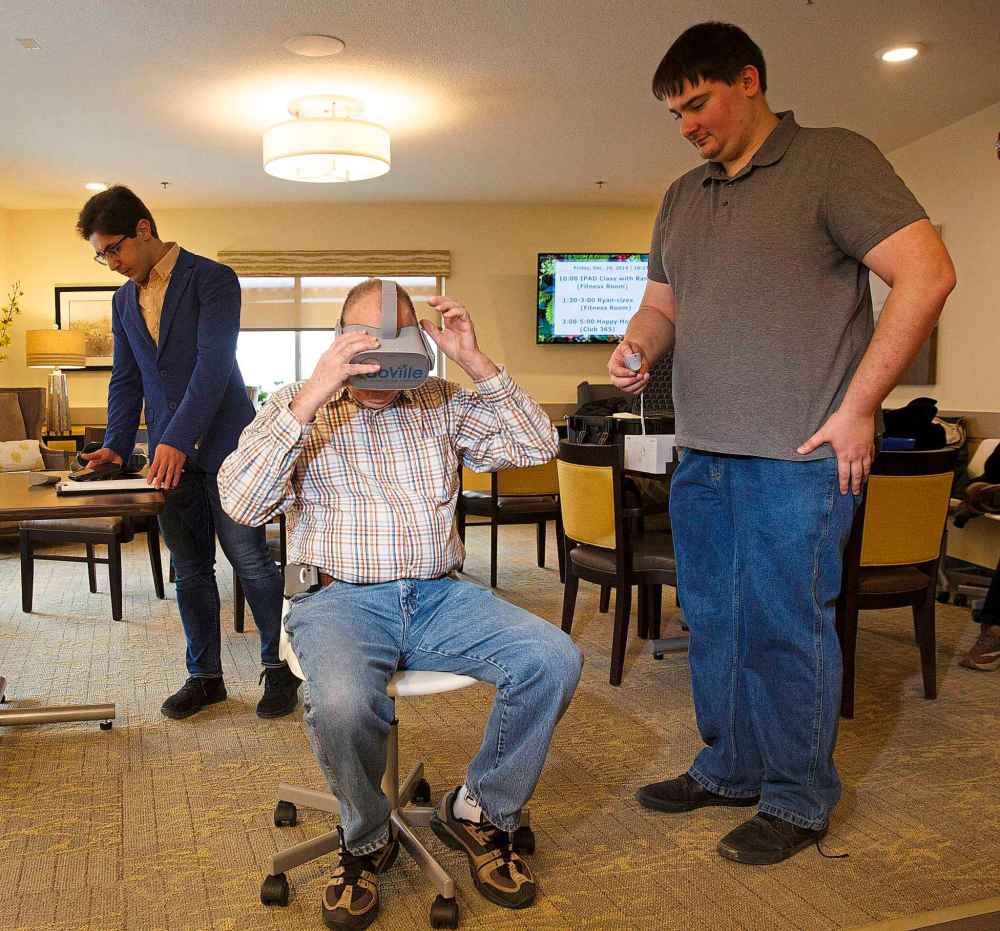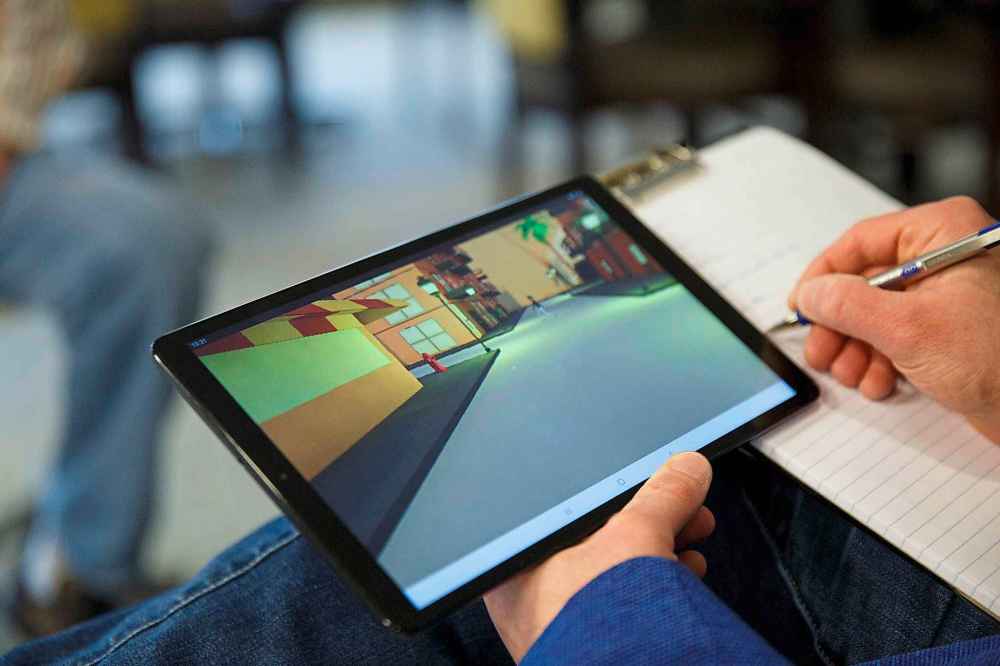Virtual-reality game gives insight into seniors’ brains
Advertisement
Read this article for free:
or
Already have an account? Log in here »
To continue reading, please subscribe:
Monthly Digital Subscription
$0 for the first 4 weeks*
- Enjoy unlimited reading on winnipegfreepress.com
- Read the E-Edition, our digital replica newspaper
- Access News Break, our award-winning app
- Play interactive puzzles
*No charge for 4 weeks then price increases to the regular rate of $19.00 plus GST every four weeks. Offer available to new and qualified returning subscribers only. Cancel any time.
Monthly Digital Subscription
$4.75/week*
- Enjoy unlimited reading on winnipegfreepress.com
- Read the E-Edition, our digital replica newspaper
- Access News Break, our award-winning app
- Play interactive puzzles
*Billed as $19 plus GST every four weeks. Cancel any time.
To continue reading, please subscribe:
Add Free Press access to your Brandon Sun subscription for only an additional
$1 for the first 4 weeks*
*Your next subscription payment will increase by $1.00 and you will be charged $16.99 plus GST for four weeks. After four weeks, your payment will increase to $23.99 plus GST every four weeks.
Read unlimited articles for free today:
or
Already have an account? Log in here »
Hey there, time traveller!
This article was published 20/12/2019 (2170 days ago), so information in it may no longer be current.
For the past two weeks, Wasyl Boyko has spent a part of his morning immersed in a virtual world; one where sandy beaches are plentiful, there’s no line at the local amusement park and mystery is the name of the game.
The 72-year-old resident at Brightwater Senior Living Centre is playing DoVille — an animated virtual reality game developed by Winnipeg’s Project Whitecard — not for recreation, but to support scientific inquiry.
A virtual-reality headset isolates Boyko from nearby graduate student Ali Tavakoli, who is recording Boyko’s progress through the game. He’s exploring the town of Juniper Beach and searching for clues to solve a crime. It’s a puzzle that requires Boyko to remember the lay of the virtual land and a sequence of events through time.
“It is challenging, because I’m not playing on stuff like that. It’s much different,” said Boyko, whose foray into gaming ended when the first Nintendo console launched in the 1980s.
“And it’s interesting in a way that once you catch on to it, you start searching for these things. Now I’ve finally figured out where I have to go to move on to the next step.”
Boyko is a participant in a scientific study led by neuroscientist Bruce Bolster, an associate professor at the University of Winnipeg, and neuropsychiatrist Mandana Modirrousta, an associate professor at the University of Manitoba. The pair is investigating whether virtual-reality games can improve cognitive function in older adults, specifically working memory, episodic memory and spatial navigation skills.
“We’re interested in this because of the evidence that these kinds of experiences can have a neuroprotective quality, if you like,” Bolster explained. “As we age, the size of our hippocampus tends to decline a little bit. Our memories and spacial abilities tend to decline a little bit.”
The hippocampus, he said, is the part of the brain where information about getting to your doctor’s office, and remembering where you left your coffee mug is accessed. This is otherwise known as episodic memory.
Studies have also shown the hippocampus’s structure and function can change as a result of experience, but as you age, experiences can be limited, Bolster said.
“The things that prevent, and even reverse cognitive decline, are physical exercise, social engagement and cognitive challenge,” he said. “If you have limited mobility or limited access to transportation, you can’t get out in the world, you can’t get the physical exercise that you need.
“The things that really matter are being able to get out and engage with the world physically and socially,” he said. “I think this has a benefit where people don’t have all of those opportunities.”
Researchers are increasingly incorporating virtual reality into scientific studies to evaluate the platform’s potential as a therapeutic tool, and industry partners such as Project Whitecard are stepping up to write the programs needed for novel experiments.

“We try to use the highly skilled folks that work with me to make the world better. That’s a very rewarding thing to do,” Project Whitecard chief executive officer Khal Shariff said.
“If we can show that you create virtual reality in such a way it doesn’t do damage, and it might indeed do good, then it will change how people create virtual reality after we publish this study.”
Shariff said his Corydon-based studio first looked into virtual-reality programming three years ago and accessed funding through private investment, the Canada Media Fund and the Manitoba Interactive Digital Media Tax Credit to develop DoVille.
The game is currently in the beta-testing stage and a commercial product could be available as early as March, Shariff said.
“Any time you are exploring a world that’s new and exciting creates that sense of well-being, as long as it’s not too complicated,” Shariff said. “The little seeds that we’re planting here, the ideas that go out into the world, I think it’s significant.”
The research being conducted in Winnipeg will include 50 participants between the ages of 65 and 85 without any current neurological or psychiatric diseases.
Part of the funding for the nine-month research program has been provided by Mitacs, a national, not-for-profit research and training organization supported by the federal and provincial governments, as well as industry and post-secondary institutions.
Other studies involving games and virtual reality have shown enhancements in cognitive performance, Bolster said, as well as changes in the brain related to white-matter integrity and nerve tracts connected to the hippocampus.
“The thing that’s encouraging, I suppose, if you’re getting older, is that your brain volume is going down but you’re always replacing your hippocampus cells,” he said.
“Of course, as scientists we’re skeptics. We believe that we have a result when we see the numbers.”
danielle.dasilva@freepress.mb.ca



